Don't wanna be here? Send us removal request.
Text
Brora Beach and its Arctic Terns.
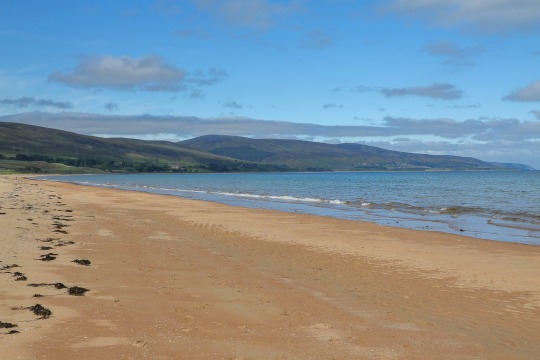
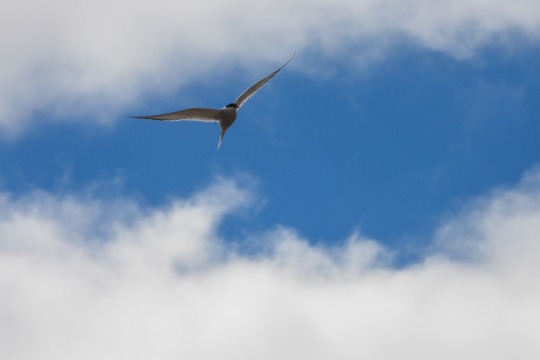
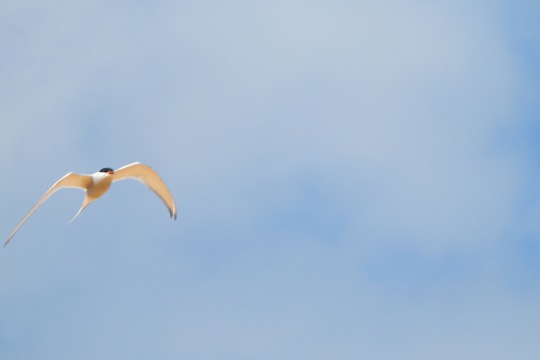


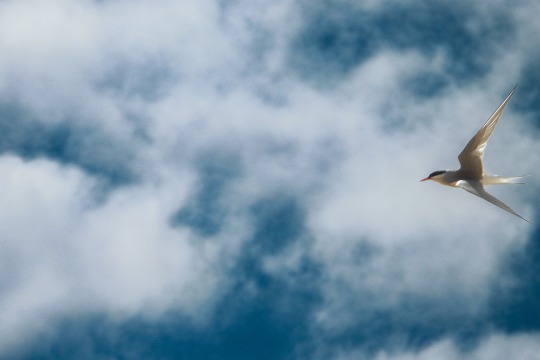


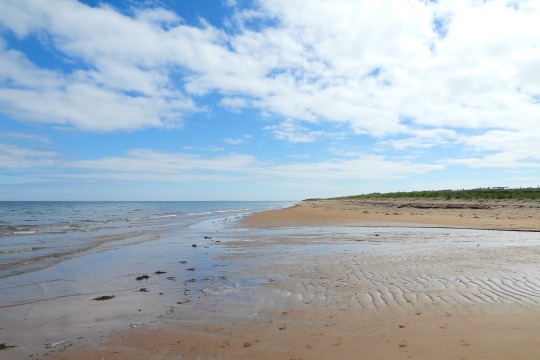
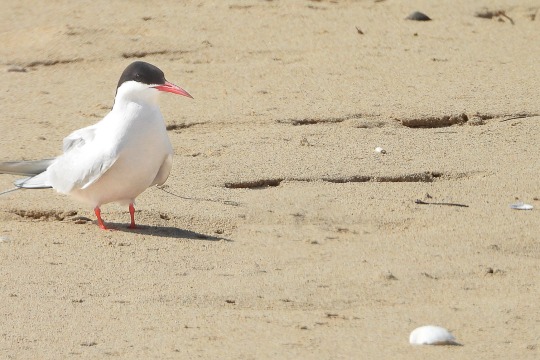
#birds#wildlife#nature#tourism#scotland#coastal wildlife#beauty#coastline#camping#east coast#Arctic terns#seabirds#Scottish nature
4 notes
·
View notes
Text
Puffins.
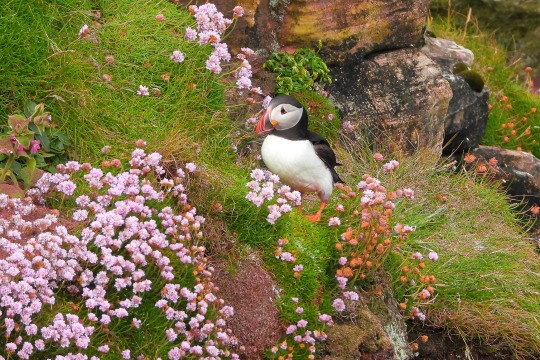

#birds#wildlife#scotland#north coast#coastal wildlife#coastline#camping#beauty#tourism#nature#puffins#sea thrift#flowers#seaside flora#cliffs#dunnet head
2 notes
·
View notes
Text
Birds at Dunnet Head, Scotland.
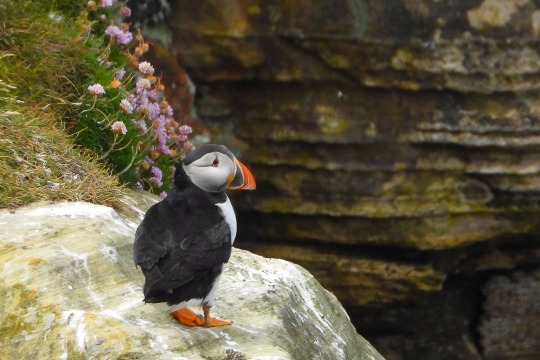
1 note
·
View note
Text
Puffins at Dunnet Head. Scotland.
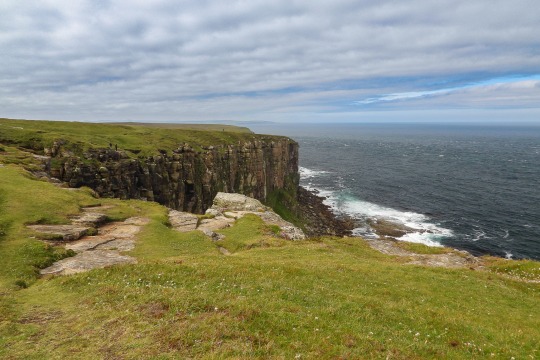
Dunnet Head. The northern most point of mainland Britain. A beauty spot and a centre for watching lots of marine wildlife, from seals to puffins and arctic skuas.

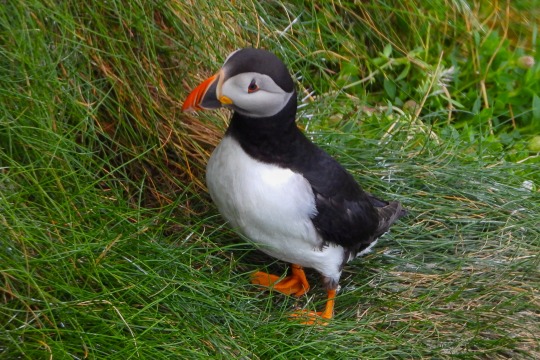
Puffins next to their burrows in the slopes above the cliffs at Dunnet Head. In summer there are hundreds of Puffins on these slopes, as well as Razorbills, while in the seas below you can spot Grey Seals as waves break on the rocks at the foot of the cliffs.


Amongst the Pink Sea Thrift you can see dozens of Puffin burrows on the grassy slopes of the cliff top.

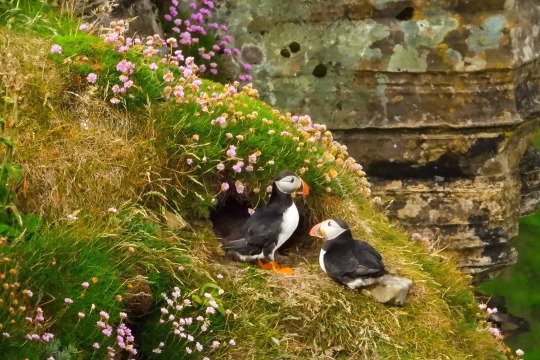
More Puffins at Dunnet Head.
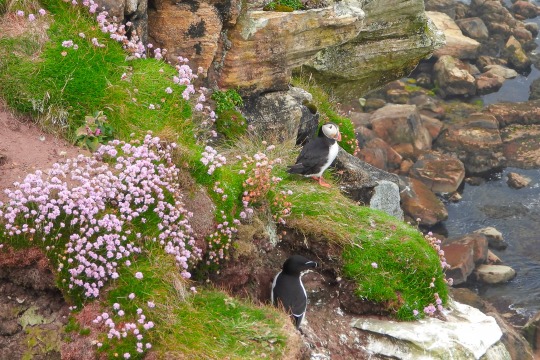

Puffin and Razorbill on the cliff tops at Dunnet Head, Scotland, on the famous North Coast 500 near Thurso.

Puffins by their burrow on the cliff top at Dunnet Head.
#birds#wildlife#nature#tourism#scotland#coastal wildlife#north coast#beauty#coastline#camping#puffins#seabirds#marine life#scenery#landscapes#Scottish wildlife#Dunnet head
1 note
·
View note
Text
Duncansby Head to John O’Groats and Stroma Island.






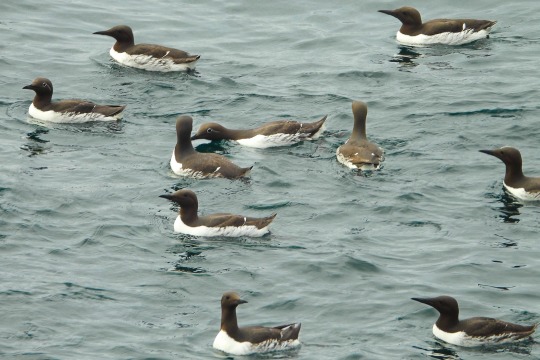

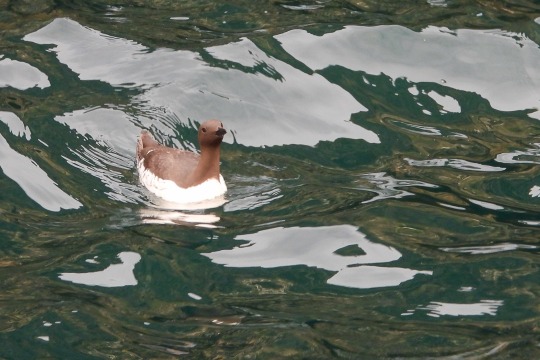

From John O’Groats we took a tourist trip out across to Stroma Island to see the sea bird colonies there. All of these Guillemots, Razorbills and Spectacled Guillemots were in the water, quite close to the boat as we went around the island.
#birds#wildlife#nature#scotland#coastal wildlife#tourism#coastline#guillemots#razorbills#seabirds#beauty#north coast
1 note
·
View note
Text
Dunnett Head, Scotland.

Weasel at Dunnett Head, Scotland’s most northerly point in the summer.

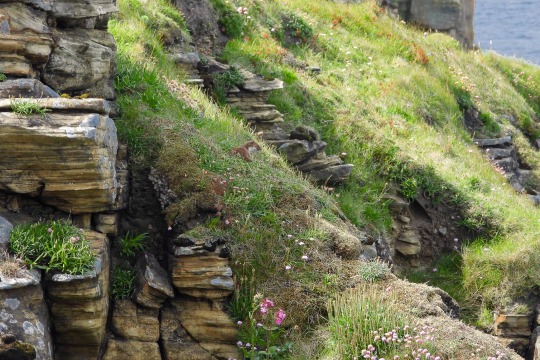


Dunnett is a fantastic place to see a wide variety of seabirds. These are Razorbills. There are also puffins burrowing into the cliffs here, as well seals in the waters below.

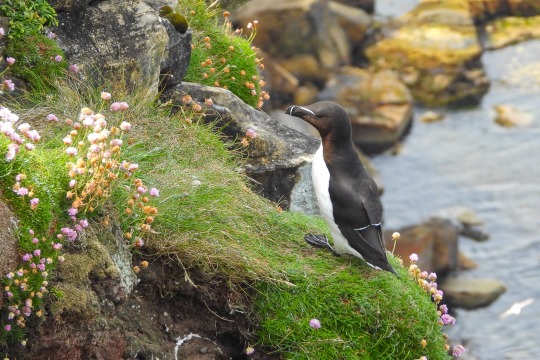
#nature#wildlife#birds#coastal wildlife#beauty#coastline#scotland#north coast#weasels#mammals#seabirds#tourism
2 notes
·
View notes
Text
A walk along the coast at Scourie Bay.
Taking a coastal walk around Scourie Bay on a summers day we came across some great views and some interesting wildlife. And a rather cute mother sheep and her lamb too. We saw young wren, a wheatear, a common sandpiper (not photographed here) and a meadow pipit.

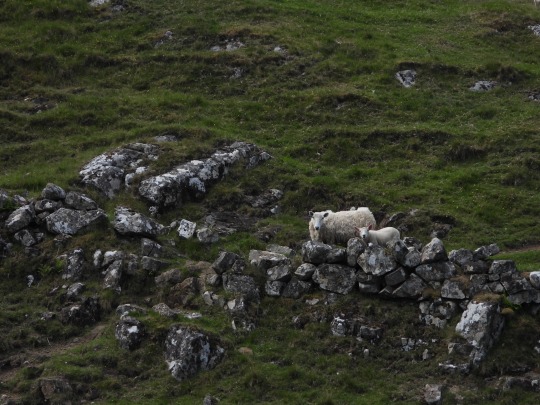
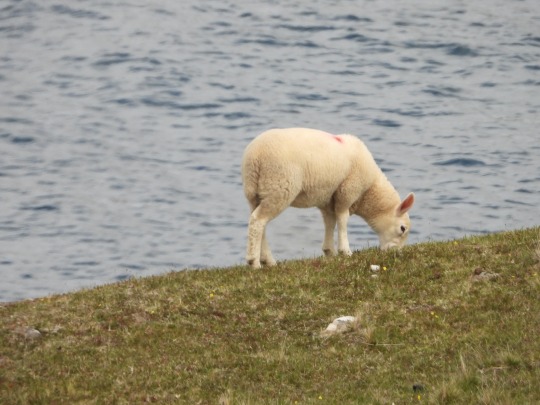



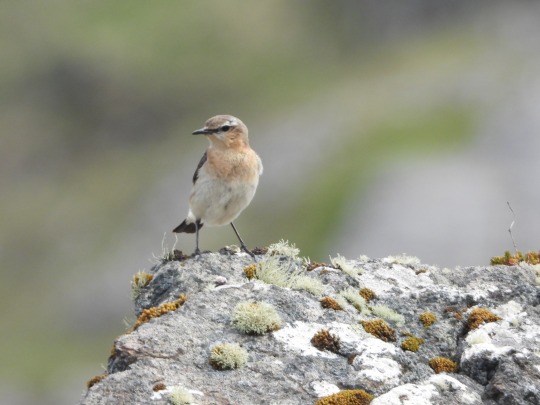



#birds#wildlife#nature#coastal wildlife#wren#meadow pipit#northern wheatear#coastline#coastal#scotland#seaside#outdoors#walks#north coast#tourism#camping
0 notes
Text
Scourie Bay. North Coast 500.
This is Scourie Bay where we camped for a couple of days, taking advantage of the good weather and the calm seas to take our kayak out on the bay a couple of times. Then we’d walk along the coast taking in the fantastic sea views.
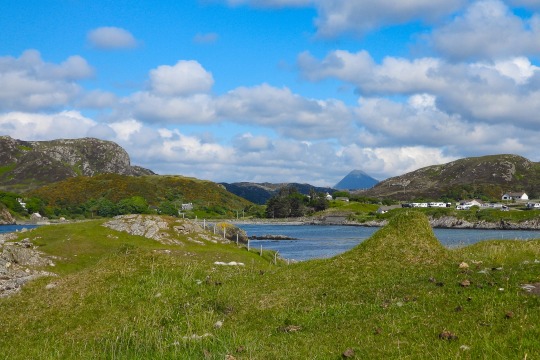
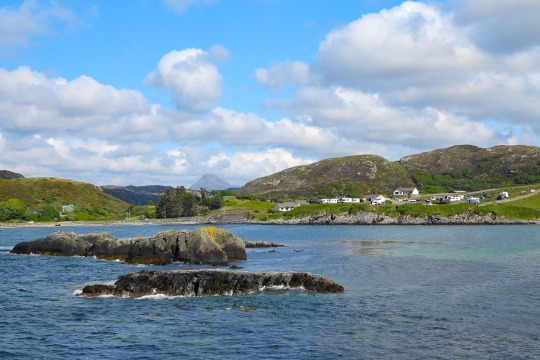
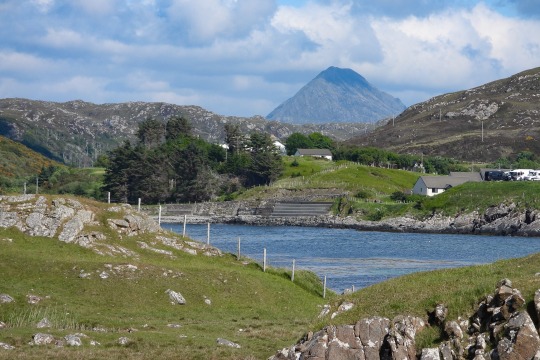
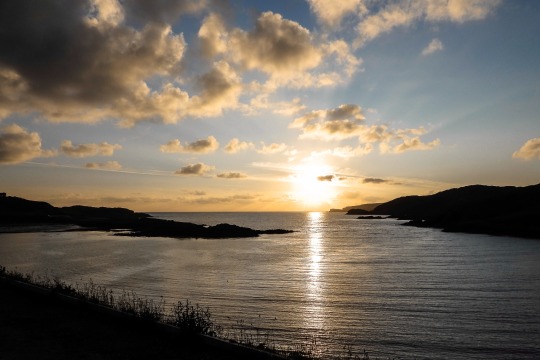

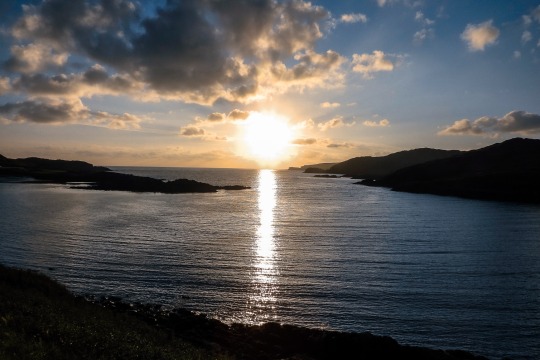
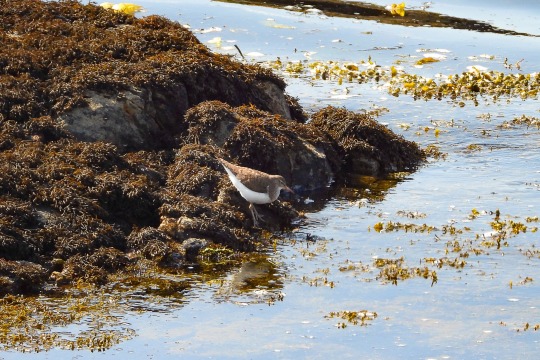
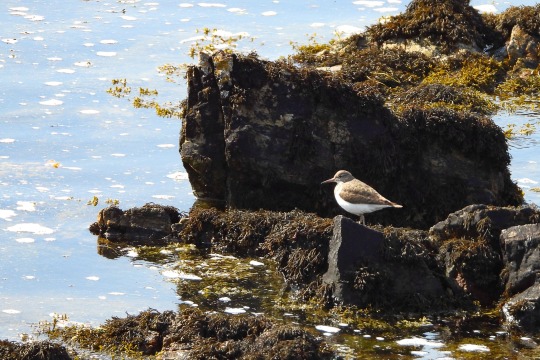
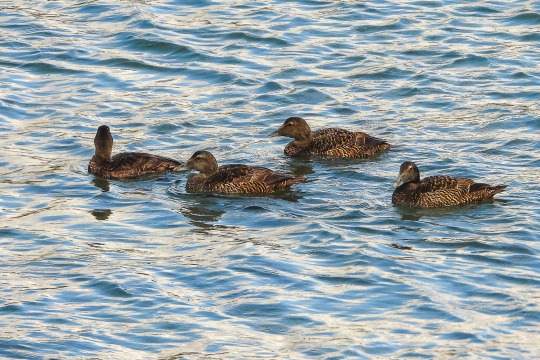
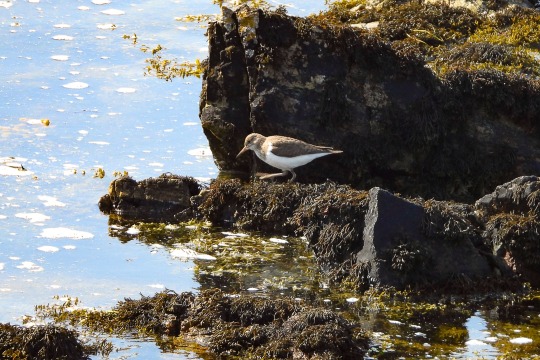
#birds#wildlife#coastal wildlife#ducks#nature#sunset#scotland#sea views#coastline#north coast#common sandpiper#scottish nature
2 notes
·
View notes
Text
And on to Scourie Bay.
After Knockan Crag, our route took us further eastwards to wards John o’ Groats and our next stop, Scourie Bay along the North Coast 500 route.

A few miles from Knockan Crag we came to another popular tourist destination. Leaving the camper van we headed off to see the site of the caves where Stone Age remains have been found. We passed this waterfall on the way. The next shot is of the caves.

You can see the caves at the bottom of the rock formation above.
Then we were back on the road, heading to Scourie Bay.
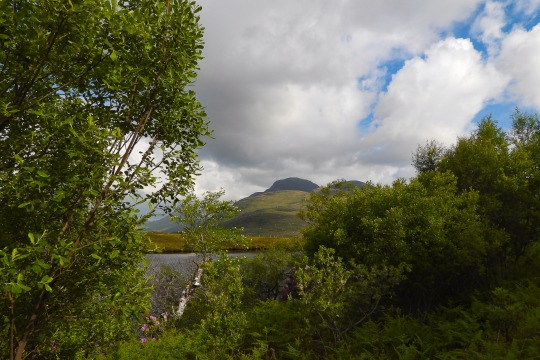


#nature#mountains#waterfalls#caves and cliffs#history#stone age#countryside#scotland#north coast#tourism
0 notes
Text
Red Deer at Knockan Crag.
Here are some more photos of the RedDeer family I saw at Knockan Crag. And a couple of photos of the views from there.
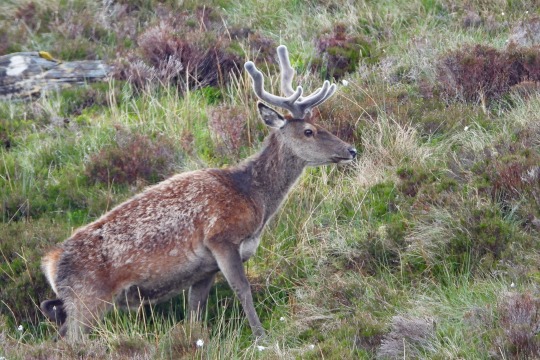

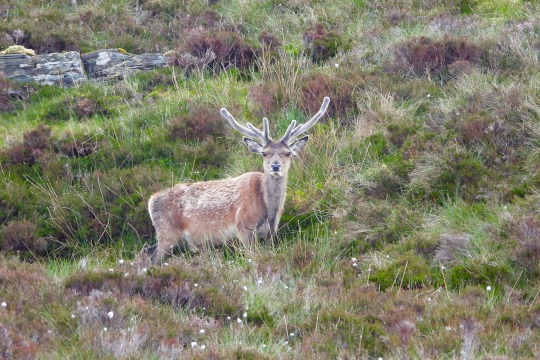

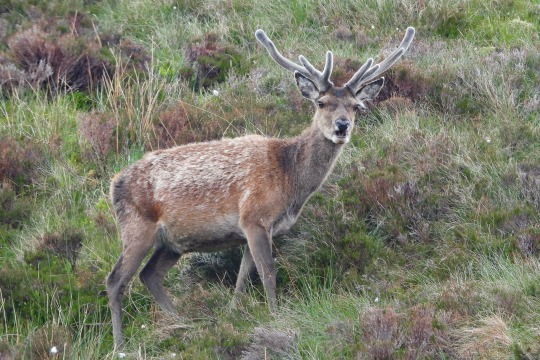
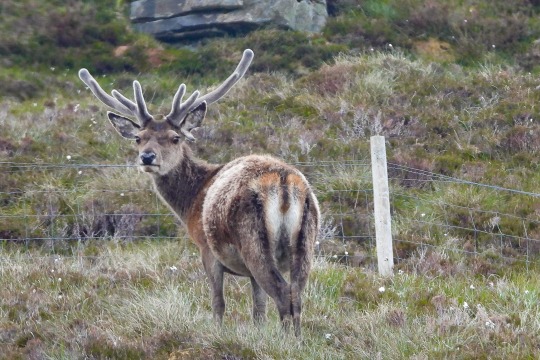
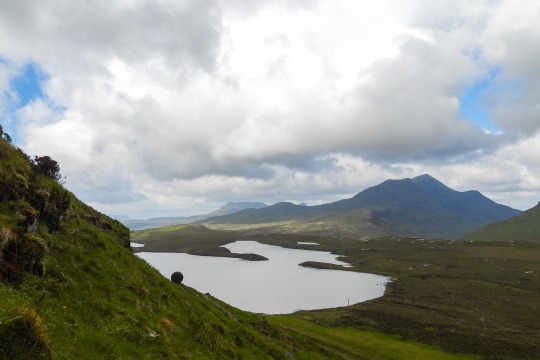

#nature#wildlife#scotland#north coast#tourism#camper vans#mountain views#mammals#red deer#beauty#scottish nature#countryside
0 notes
Text
North Coast 500.
From Ardmair to Knockan Crag. 2021.
Heading eastbound from Ardmair, the next stop was Knockan Crag. This is a route much travelled by camper vans and motor homes. Despite the occasional narrow one track roads there are plenty of good passing places and as the visibility is excellent it’s a very easy route to drive even in a camper van . And once you arrive at Knockan Crag there is a very good parking place with drinking water and toilets, as well as a lot of information panels and a well preserved walking route up the hillside giving great views over the Lochie and across the countryside.
There are also Red Deer there. I was lucky enough to see a reasonably family group not too far away. I’m sure they are used to people as they clearly saw me but didn’t run off scared.
Below are some of the photos I took at Knockan Crag that day.


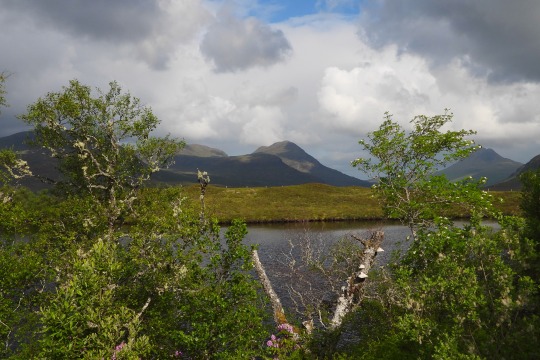
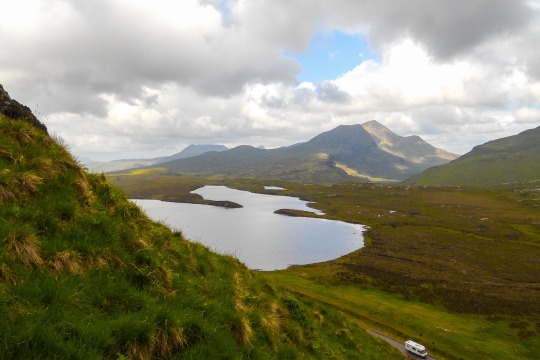

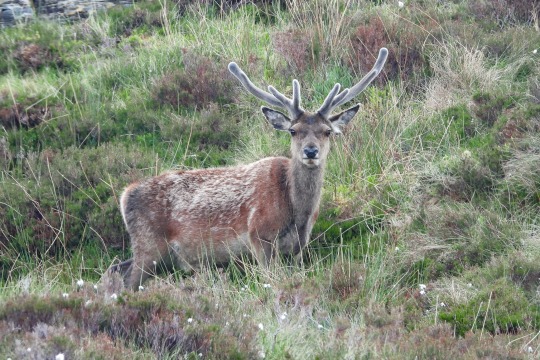


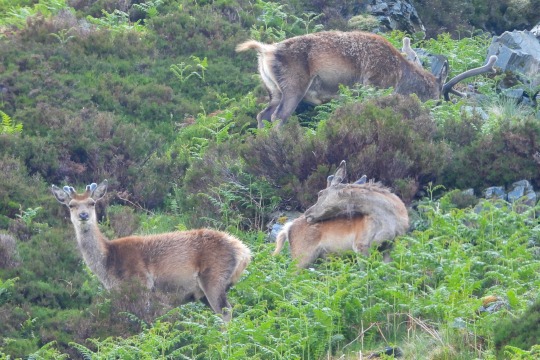
#nature#wildlife#red deer#scotland#mountains#scenic views#mountain views#tourism#beauty#Scottish wildlife#Knockan crag#hiking#camper van#camping
0 notes
Text
Ardmair views. Then photos were taken just before the sun set at Ardmair near Ullapool, in the north of Scotland.
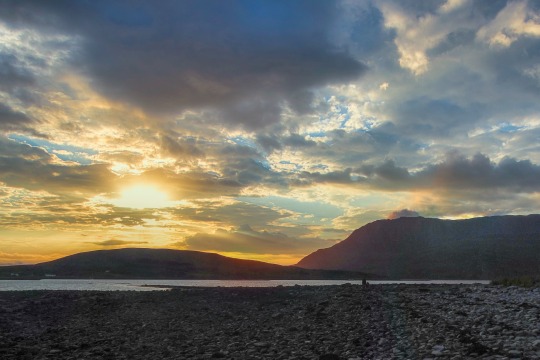
The scenery is pretty impressive. As for the wildlife, in the few hours we spent there before the sun went down on the sea views were a couple of Oyster Catchers and a very smart looking Ringed Plover just meandering around on the foreshore. Neither seemed to be particularly afraid of me as I took a lot of photos from not a lot more than 10 metres away.
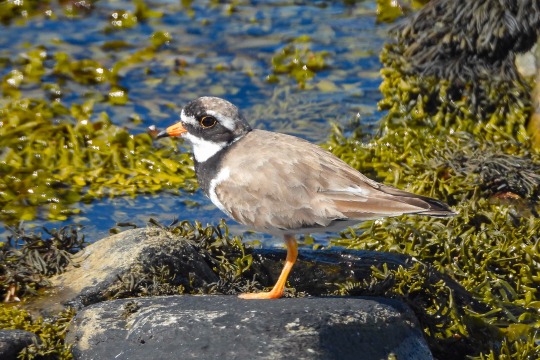
Ringed Plover.
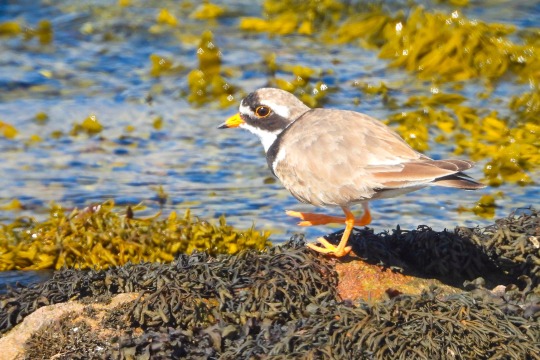
This Ringed Plover wasn’t ringed, as in it didn’t have a ring attached to its leg, unlike its companion, below.
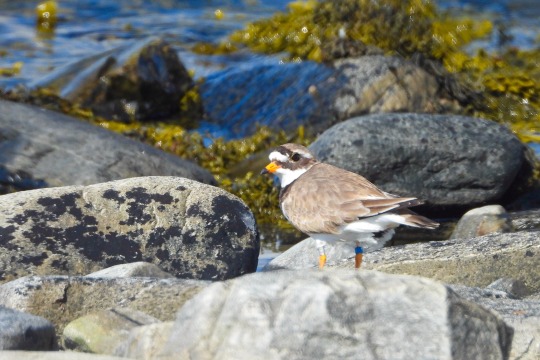
Notice the blue ring on one leg and the silver one on the other.
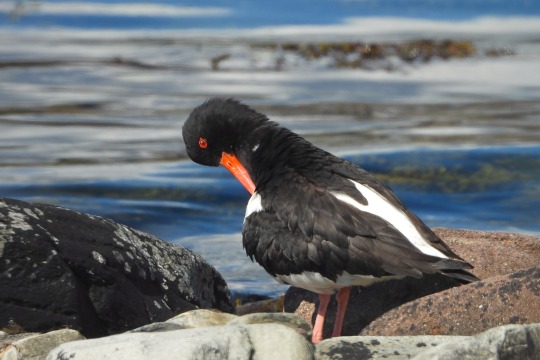
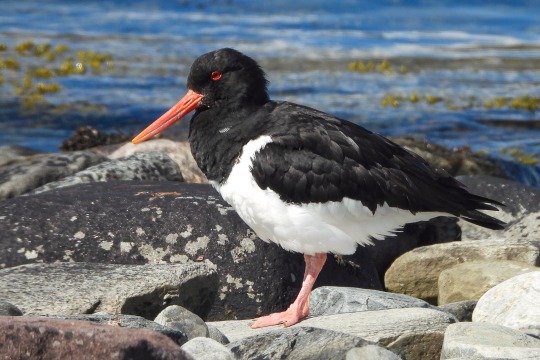
This smart Oyster Catcher was quite happy to carry on its preening as I photographed it from a few metres. They’re obviously pretty used to people, which was my good fortune.

Another sunset photo over the Firth.
#birds#camping#seaviews#landscapes#nature#coastal wildlife#coast#scotland#common ringed plover#oyster catcher#north coast#beauty
14 notes
·
View notes
Text
Scotland. 2021.
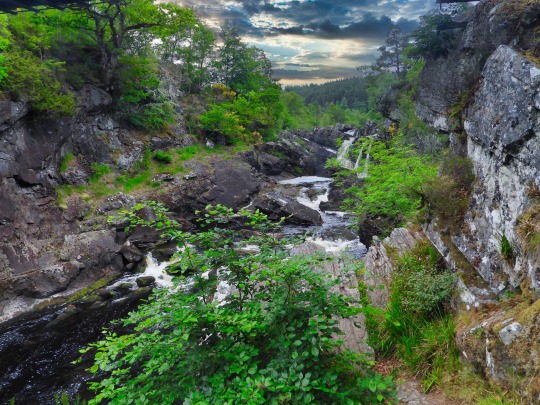
Rogie falls on the road to Ullapool.

The waterfalls.
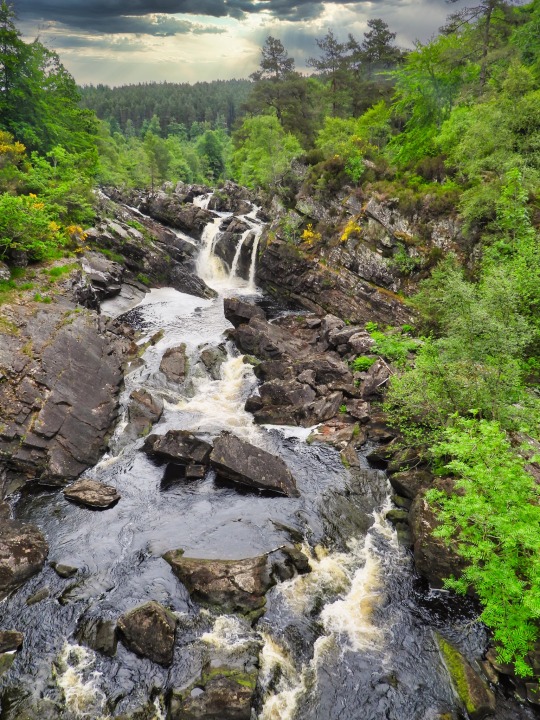
On our way to the northern tip of Scotland we passed these waterfalls. Just off the main road to Ullapool are Rogie Falls. They’re a mere 10 to 15 minutes easy walk from the large car park there. They’re well worth a visit, especially if you’re going to do the North Coast 500 anyway.
1 note
·
View note
Text
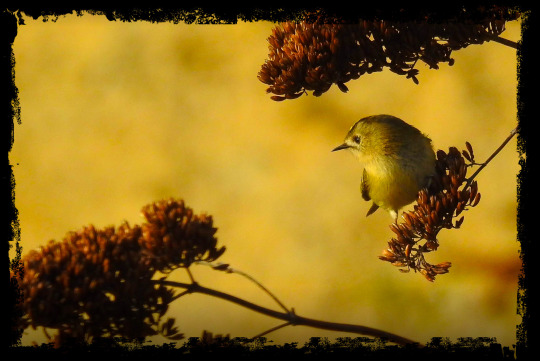
A goldcrest spotted in Looe, Cornwall.

Ring necked duck at Sibleyback Lake, Cornwall.

Song-thrush.

Hooded crow. These birds are pretty common in Scotland.
#birds#goldcrest#nature#ducks#water birds#wetlands#song birds#song thrush#garden birds#hooded crow#scottish#coastal wildlife
0 notes
Text
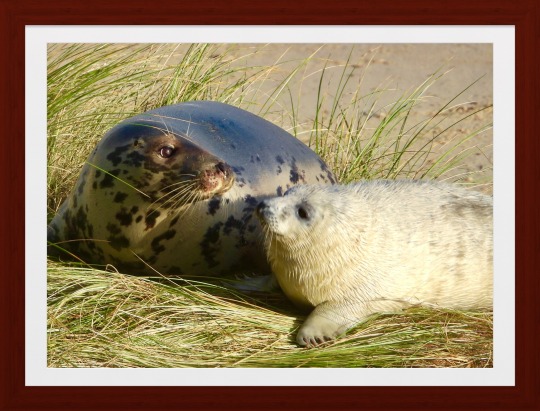


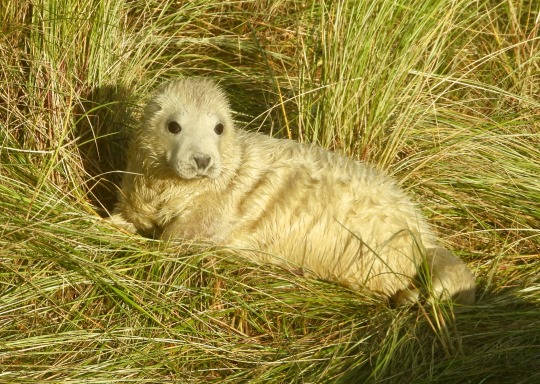


Seals at Horsey Beach, Norfolk in November 2023. Norfolk sees thousands of seals born on its coast near Horsey each year during the months of November and December.
255 notes
·
View notes
Text
Winter by the sea.
One late afternoon at the end of February, just before the cold snap of the so called Beast from Siberia and Storm Emma a walk along the seafront at Hannafore was really fruitful, as far as sightings was concerned.
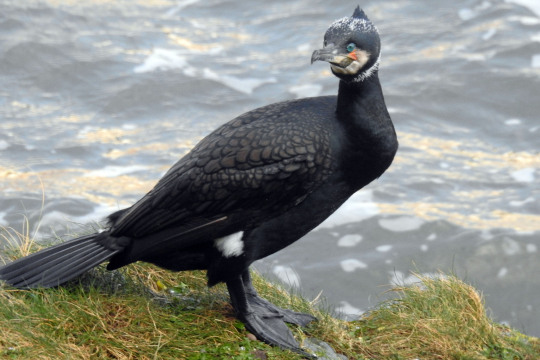
First there was the Cormorant resplendent in its breeding plumage, with its white splash on its thigh.
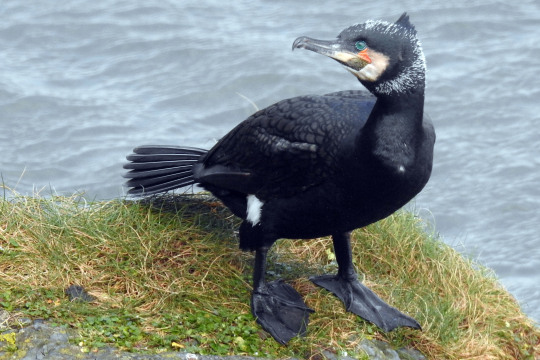
In the Looe River was the Eider Duck, an apparent permanent visitor to the area. So much so the locals have nick named him Eric. Eric is there all year around, often hanging out with Herring Gulls around the harbour.
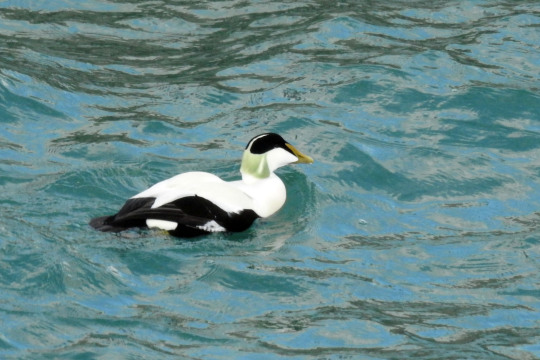
In the harbour an adult Herring Gull gives its young a crab to try to eat, which from the look of things wasn’t any easy lunch! (below)

But the biggest thrill was to catch a good view of the Kingfisher on the rocks around Hannafore. As I was walking along a lady seeing my camera slung around my neck, asked me if I was looking to do some birdwatching, and added that just around the sea wall was a Kingfisher, which she’d been watching for a long time, and which didn’t seem in any hurry to depart.

Having heard the Kingfisher was there I now had to find it, which although it is very brightly coloured isn’t always easy if you don’t know where in amongst the rocks to look. Fortunately as I turned the corner past the coastguards’ post I saw someone focussing their attention and camera out towards a group of lowish rocks, and following the direction he indicated saw the bird was in fact still around.

The Kingfisher moved around a bit, but never too far to follow, and I managed to keep him in my sights enough to take a good dozen photos, although not all were good quality.
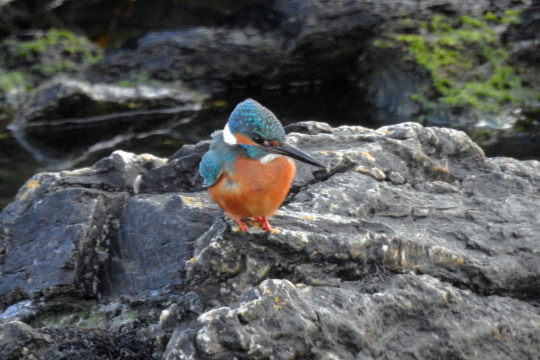
at one stage the bird even flew up onto the walkway for a while.
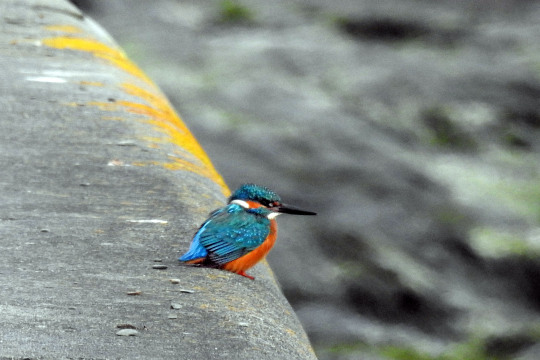
Maybe not quite as pretty as the Kingfisher, the next bird I saw was a female Stonechat on the banks overlooking the sea front perching on a twig.
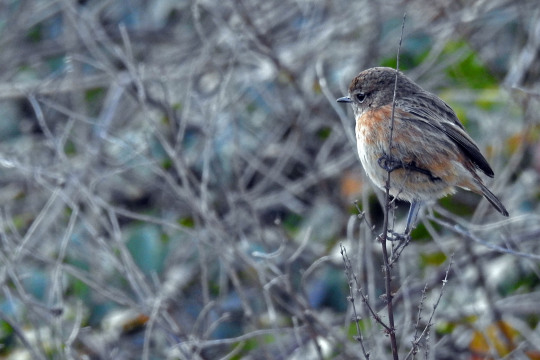
swiftly followed by a Robin perching in the shrubs at the western end of the sea wall.


Meanwhile below, in amongst the sea weed, a male Stonechat was on the lookout for something to eat (below).
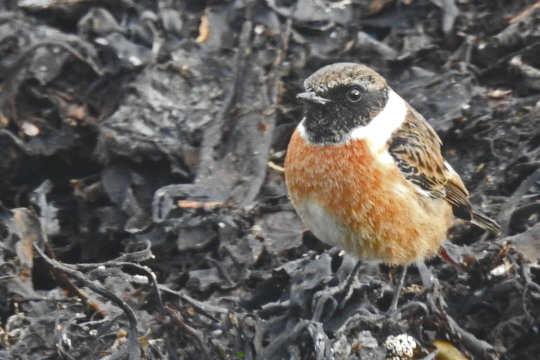
At the extreme western end of the Hannafore sea wall there are often little birds in amongst the rocks and shrubs there. And it was the same that day. As well as the Stonechats there were a couple of Wrens, sometimes on the rocks, sometimes in amongst the black sea weed on the beach. (below)


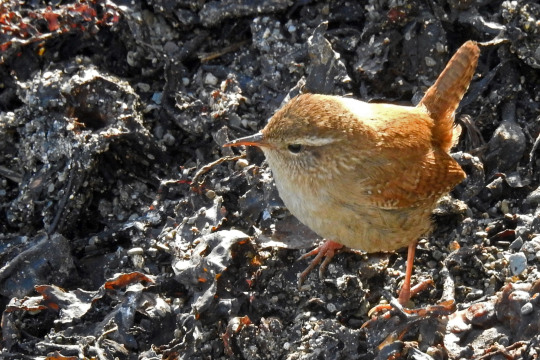
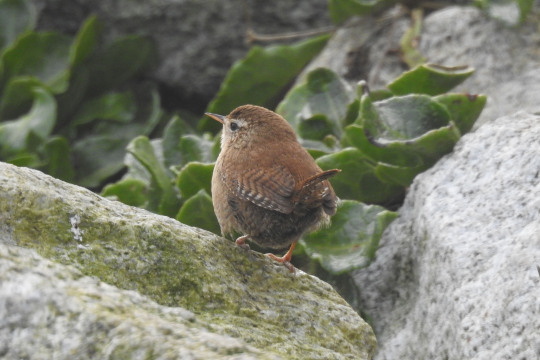

Beside the wren were a couple of Dunnocks, in amongst the same rocks, this one kind enough to pose so that a photo could make out its delicate facial markings and generally pretty plumage.
#cormorant#sea side#plumage#eider duck#herring gull#crab#kingfisher#oyster catcher#stonechat#robin#wren#dunnock
1 note
·
View note
Text
The Camel Trail (Feb. 2018)
The Camel Trail on the last Saturday of the February half term holiday was quite busy considering it was so cold, but it was just about the best day of the holiday, so maybe not so surprising really.
Not long after starting on our way to Padstow from Wadebridge we came upon a couple of Lapwings, beside the receding waters of the River Camel.
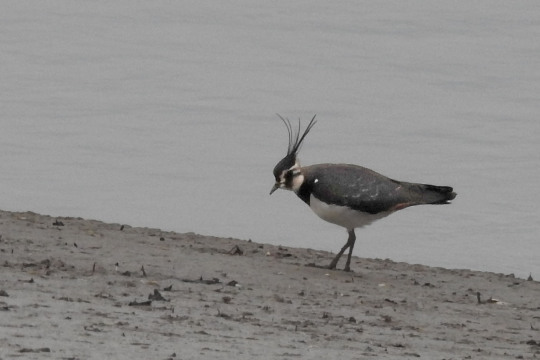
The clear blue skies over the River Camel (below) as you follow the cycle path towards Padstow made this a good day for a cycle ride.
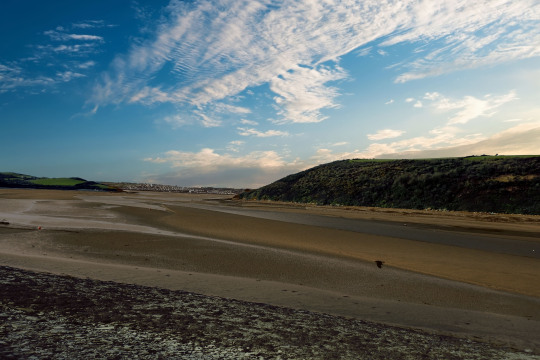

On the River Camel further towards the sea we were to see a group of Bar Tailed Godwits, (below) with an Oyster Catcher also foraging for food.
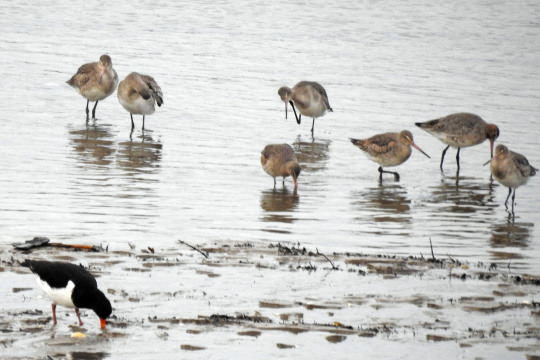

Here is a Redshank along with a Bar Tailed Godwit.
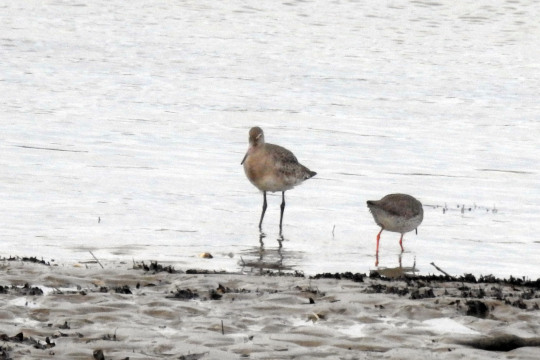
And a treat for me, a few Shelducks really close to the river bank in the newly uncovered mud (below)

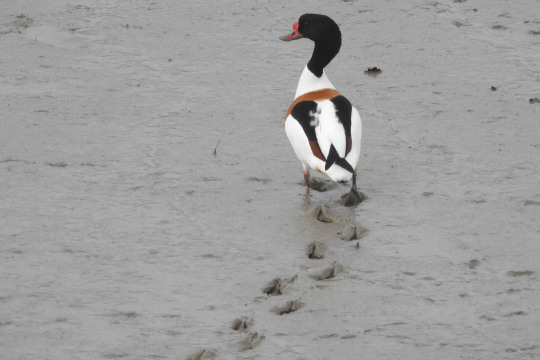

I particularly liked this one with the duck making a nice clear trail as it wandered off a bit further from my camera (above)
Below is a picture of a Curlew and a Redshank conveniently in the same shot.
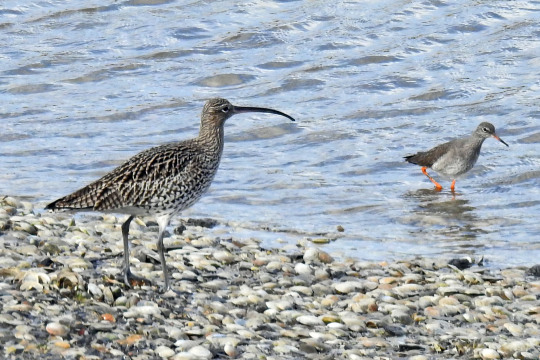
Below some more pictures of the Curlew showing its finely detailed plumage and curved beak to its best advantage.


Having already come across a Redshank, it was now the turn of the Greenshank to make an appearance.....

and then for the two to cross paths, showing the difference in their sizes as well as colours of plumage.

More Lapwings were congregating a little later, until something scared them off into a mass exit (below).
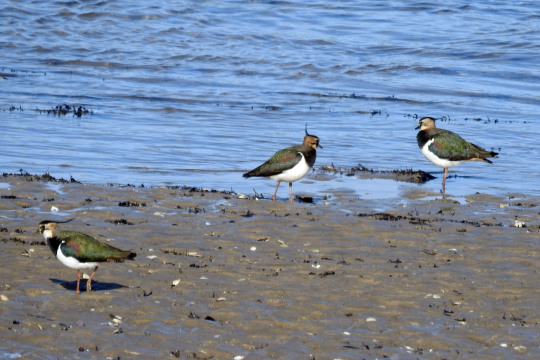

By the reservoir at the Padstow end of the cycle trail you can sometimes catch a glimpse of a Kingfisher, but not today. Today we had the consolation of a couple of Little Grebes. Unfortunately the light wasn’t really good enough, and the photo isn't very good as a result; but you can make out the white facial markings and reddy neck.

Once in Padstow, by the harbour, amongst the holiday makers and day trippers were the usual collection of hopeful Herring Gulls.

This pair seem to have each other’s elegance and welfare in mind, as they preen one another.
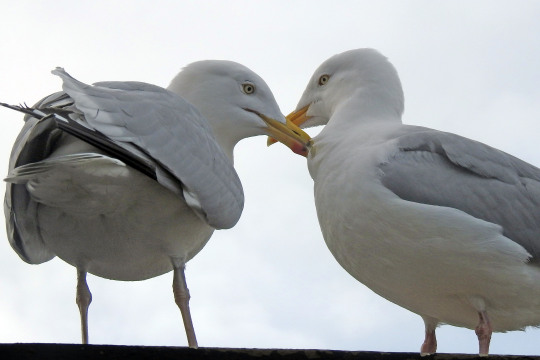
and guard

and stretch their wings.
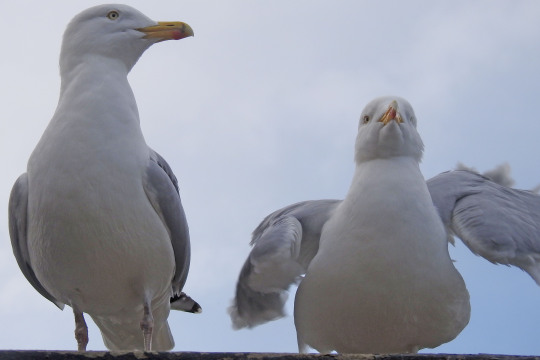
Another group of Shelducks turned up as we made our return journey, and here one of them is sifting the mud for its food,
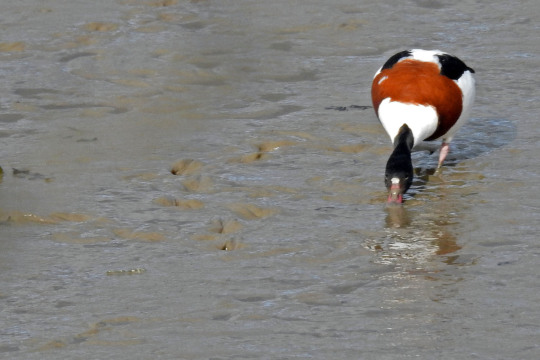
leaving its distinctive bill somewhat muddy.

and finally, as we were almost back at Wadebridge a pair of Mute Swans flew past in the direction of the estuary.
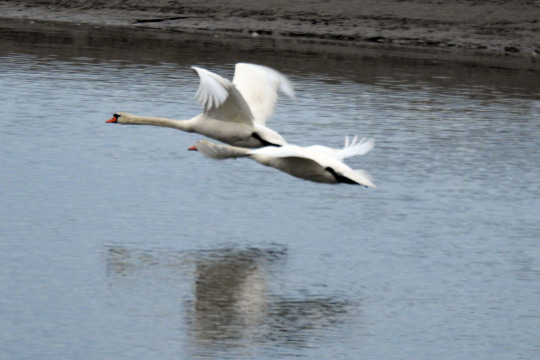
#River Camel#birds#lapwing#cycle trail#February#Shelduck#godwits#Curlew#redshank#greenshank#little grebe#herring gull#mute swan
0 notes